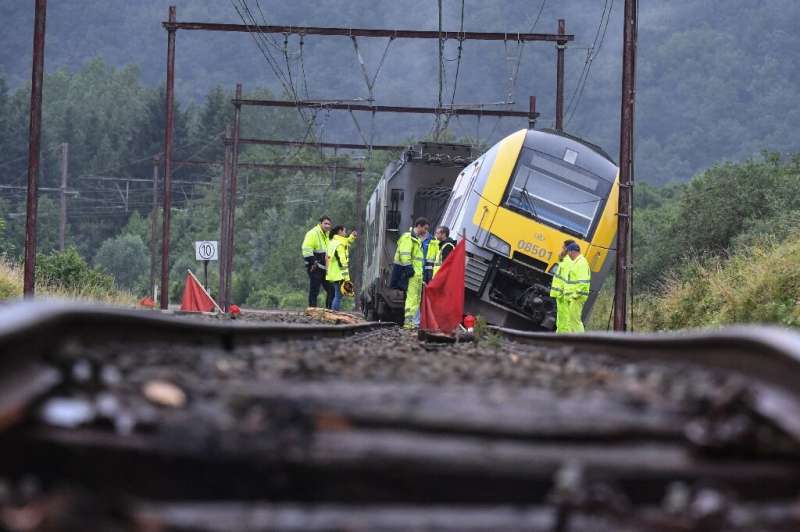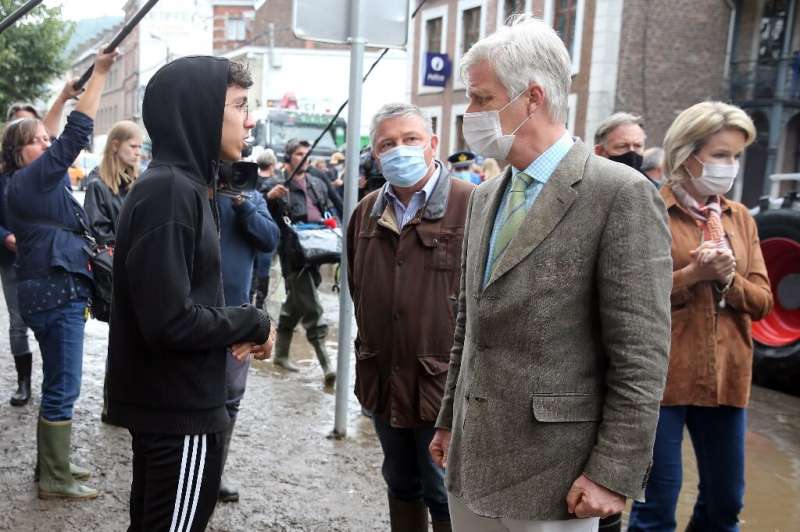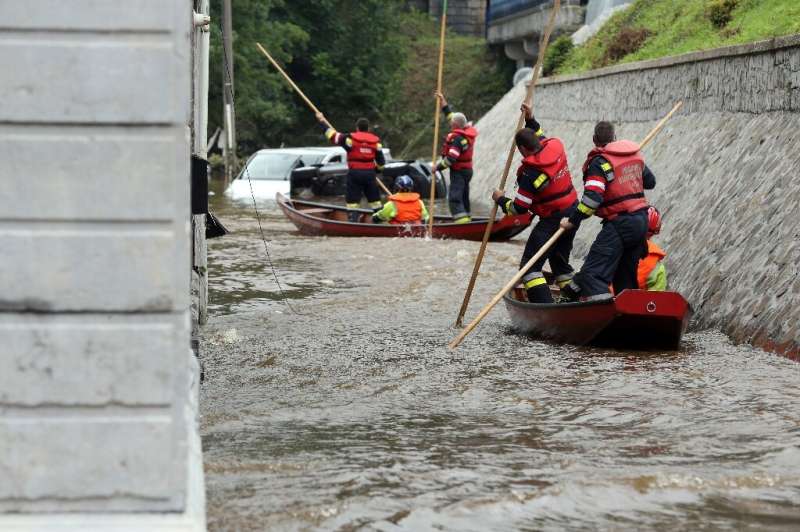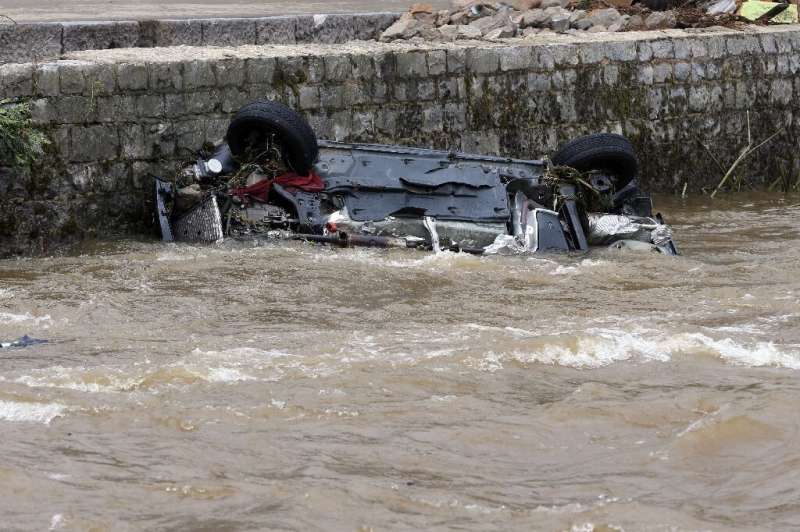Flood waters in Belgium's Brabant dislodged train tracks and caused a derailment.
When the water came, it came quickly. The clear-up operation in the devastated small towns of eastern Belgium will take far longer.
The densely-populated green valleys of the Meuse basin have been hit by what the country's prime minister called a flood "without precedent".
At least 20 people have been confirmed dead, and around the same number are reported missing. The survivors are in shock.
In Pepinster, the heart of the town was gouged by a torrent that left a trail of mud and flipped cars down the main street.
Part of the town was still inaccessible late Friday, a day after the surge. Helicopters circled overhead, lowering rescuers on a cable to check for survivors whenever a clue is spotted.
When Philippe, king of the Belgians, and Queen Mathilde visited on Friday, a day after the flood, stunned families were still digging out homes and saving what furniture they could.
Volunteer coordinator Roland Vanden Broek, 69, told the royals that the town need help from outside, but that local people had already risen to the challenge.
"The solidarity has been first rate. There was even a group of scouts that came to help out," he told AFP.
Sylvianne Sioen, 52, lives next door to her 85-year-old mother, who has been in Pepinster for 71 years and has seen floods before, but never one that sent muddy water into her home, even into the drawers of her furniture.
"There is great solidarity. People I didn't know came to help me carry my furniture out. It's all to be thrown away," Sioen told AFP.
Philippe, king of the Belgains and Queen Mathilde of Belgium (R) were among the well-wishers who visited the devastated town of Pepinster.
'Lost everything'
One of the volunteers is 53-year-old Philippe Denbcyden, who brought his son ten kilometres (six miles) from Rechain to help his neighbours in Pepinster.
"We pile up the furniture on the pavement so that we can clean the houses. We also brought clothes. Some people here have lost everything," he said.
At the railway station, a distribution centre has been set up for food and hot drinks. Neighbours queue in 20 centimetres of water, watching a man sink up to his waist as he tries to force open a door to a home.
Sioen's sister-in-law Sylviane had the same problem when she returned home on Thursday after sleeping at her sister's place because roads were closed. "There was a metre of water in front of the door," she said.
Things have been very bad in neighbouring Germany too, but Pepinster, a small town outside Verviers, bore the brunt of the disaster within Belgium.
"It's a disaster, a tsunami," the local mayor, Philippe Godin, told AFP.
Austrian firefighters flew to Belgium to join the rescue effort after "unprecedented" floods.
There's no electricity, no drinking water, unreliable mobile reception. Godin adds: "You have to think of the people who have lost everything, their memories. It's terrifying."
Back in Brussels, sodden after a week of torrential rain but safe from the floods, Prime Minister Alexander De Croo declared July 20 a day of national mourning.
"These are very exceptional circumstances, without any precedent in our country," he said.
Interior Minister Annelies Verlinden said the death toll from the floods had risen to 20 people, with around 20 people missing. Earlier media reports had said 23 dead.
Devastation
Chaudfontaine, Theux, Verviers, Pepinster, Spa—dozens of cities, towns and villages have been hit.
Liege was threatened with evacuation of the town centre, but after splashing the top of its embankment, the Meuse failed to break its way into the city.
Cars were washed from roads and litter the river banks.
Cars lie in market squares, stacked up like damp firewood.
Scout camps were evacuated. A train derailed. Rescue helicopters and boats plucked up families and terrified pets and took them to safety.
Rescue teams have flown in from France, Italy and Austria to help the Belgian authorities.
© 2021 AFP



























